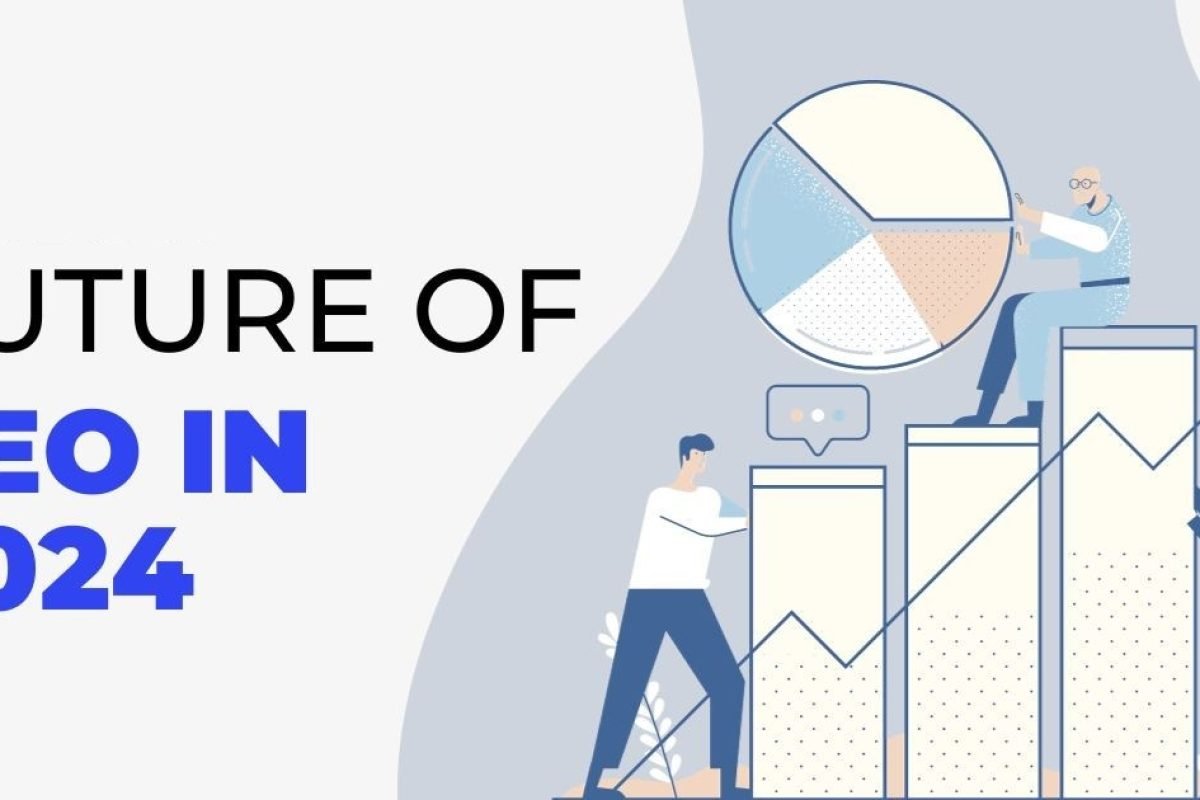In the dynamic digital landscape, SEO remains the bedrock of online visibility and success. This blog explores the evolving nature of SEO, shedding light on its importance, the latest trends, and predictions for 2024.
What is SEO?
SEO, or Search Engine Optimization, is the strategic practice of enhancing a website’s visibility on search engines. It involves optimizing various elements, including keywords, content, and technical aspects, to improve rankings and drive organic traffic.
Why is SEO important?
The significance of SEO lies in its ability to connect businesses with their target audience. A well-optimized website not only ranks higher on search engine results but also attracts quality traffic, leading to increased brand visibility, credibility, and ultimately, conversions.
What are the latest trends in SEO?
- Advancements in technology: As technology evolves, so does SEO. Advancements like Artificial Intelligence (AI) and Machine Learning (ML) are revolutionizing search algorithms, making them smarter and more user-centric.
- Artificial intelligence (AI) and machine learning (ML): AI and ML algorithms analyze user behavior, preferences, and patterns, enabling search engines to deliver more personalized and relevant results. This enhances the overall user experience and impacts search rankings.
- Natural language processing (NLP): With the rise of voice search and conversational queries, NLP is becoming integral to SEO. Search engines are getting better at understanding the context and intent behind user queries, influencing how content is created and optimized.
- Voice search: The increasing use of virtual assistants and smart devices has led to a surge in voice searches. Optimizing for voice search involves focusing on natural language and providing concise, informative answers.
- Changes in user behavior: User behavior is continually evolving, and SEO must adapt accordingly. Mobile devices have become the primary means of accessing information, influencing search patterns and preferences.
- Increased use of mobile devices: Mobile optimization is no longer an option but a necessity. Google’s mobile-first indexing prioritizes mobile-friendly websites, and businesses must ensure seamless experiences across various devices.
- The rising popularity of voice search: Voice searches are gaining traction, with users seeking quick, hands-free information. Businesses need to optimize for long-tail conversational keywords and provide content that aligns with voice search queries.
- Growing importance of local SEO: Local searches are on the rise, driven by the need for relevant, nearby information. Businesses must optimize their online presence for local searches, including Google My Business optimization and local keyword targeting.
- Evolution of search engine algorithms: Search engines continually refine their algorithms to deliver more accurate and valuable results. Staying abreast of these changes is crucial for maintaining a strong SEO strategy.
- Focus on user intent: Understanding and catering to user intent is central to modern SEO. Search engines prioritize results that align with the searcher’s intent, emphasizing the need for content that provides genuine value.
- Importance of high-quality content: Content remains king in the SEO realm. High-quality, relevant, and engaging content not only attracts visitors but also earns backlinks and social shares, contributing to improved search rankings.
- Increasing role of social signals: Social signals, such as likes, shares, and comments, are becoming factors in search algorithms. A strong social media presence can positively impact SEO by amplifying content reach and engagement.

The Future of SEO:
The future of SEO in 2024 promises further integration of technology and a more user-centric approach. As search engines become increasingly sophisticated, businesses need to stay ahead of the curve to maintain and enhance their online presence.
Conclusion:
In conclusion, the future of SEO is exciting and dynamic. Embracing technological advancements, understanding evolving user behavior, and consistently delivering high-quality content will be key to success. Businesses that adapt to these changes and prioritize user experience will undoubtedly thrive in the ever-evolving digital landscape.
Summary of key points:
- SEO is essential for online visibility, brand credibility, and conversions.
- Advancements in technology, including AI, ML, and NLP, are shaping the future of SEO.
- Voice search, mobile optimization, and local SEO are critical trends in the evolving SEO landscape.
- User intent, high-quality content, and social signals play pivotal roles in modern SEO.
- The future of SEO involves continued technological integration and a user-centric approach.
Predictions for the future of SEO:
- Further Integration of AI: AI will play an even more significant role in shaping search algorithms, emphasizing personalized and context-aware results.
- Dominance of Voice Search: The popularity of voice search will continue to rise, requiring businesses to optimize for conversational queries.
- Enhanced User Experience: SEO will focus more on delivering an enhanced user experience, with factors like page speed and mobile optimization gaining even greater importance.
- Video Content Optimization: As video content becomes more prevalent, optimizing for video searches will become a crucial aspect of SEO strategies.
Tips for businesses to stay ahead of the curve:
- Invest in AI and ML: Embrace AI and ML technologies to analyze user data, understand trends, and optimize content for better search visibility.
- Optimize for Voice Search: Incorporate natural language and long-tail keywords to cater to the rising trend of voice searches.
- Prioritize Mobile Optimization: Ensure that your website is mobile-friendly to meet the requirements of Google’s mobile-first indexing.
- Local SEO Optimization: Optimize your online presence for local searches, including Google My Business optimization and local keyword targeting.
- Stay Informed on Algorithm Changes: Keep abreast of changes in search engine algorithms to adjust your SEO strategy accordingly.
- Create High-Quality Content: Continue to produce valuable, relevant, and engaging content to attract users and earn organic backlinks.
- Build a Strong Social Media Presence: Leverage social media to amplify your content, engage with your audience, and boost social signals that impact SEO.
By staying proactive and adapting to the evolving SEO landscape, businesses can position themselves for sustained success in the digital era.
















